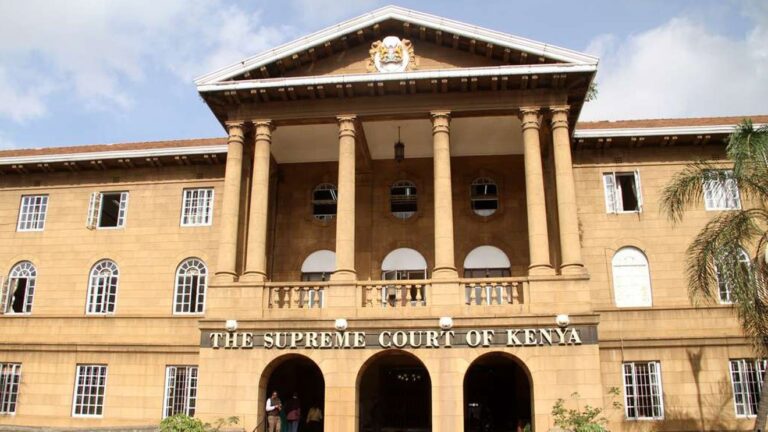Introduction
On 28th December 2023, the Supreme Court of Kenya in the case of Shah & 7 others v Mombasa Bricks & Tiles Limited & 5 others (Petition 18 (E020) of 2022) [2023] KESC 106 (KLR) (28 December 2023) (the Judgment) (the Shah case) held that a constructive trust can be imported into a land sale agreement to defeat a registered title therefrom and also a constructive trust can be imported into a shareholding of a company as to disentitle a registered holder of shares in a company obtained for valuable consideration.
The Court delved into the legal framework of constructive trusts in Kenya which is the Trustees Act and defined it to be an equitable instrument which served the purpose of preventing unjust enrichment. The Court traced the trust to emanate from the doctrines of equity which are applicable to our jurisdiction by virtue of section 3(1) of the Judicature Act. The Shah case emanated from the Court of Appeal at Mombasa’s decision( http://kenyalaw.org/caselaw/cases/view/173015/) Civil Appeal 117 of 2018 Mombasa Bricks & Tiles Ltd & 5 others v Arvind Shah & 7 others [2019] eKLR.
The Black’s Law Dictionary, 9th Edition defines a constructive trust as an equitable remedy that a court imposes against one who has obtained property wrongfully. The Supreme Court established that, “a constructive trust is a right traceable from the doctrines of equity. It arises in connection with the legal title to property when a party conducts himself in a manner to deny the other party beneficial interest in the property acquired. A constructive trust will thus automatically arise where a person who is already a trustee takes advantage of his position for his own benefit.”
Legal Analysis
The Supreme Court affirmed the position that the right to property as enshrined in Article 40 of the Constitution of Kenya, 2010 (the Constitution) is not absolute. The Supreme Court stated that there are limitations to the right to property, that being internal limitations and general limitations. The internal limitations are espoused in Article 40 of the Constitution where the State may deprive a person of property through a process of acquisition of land for a public purpose or in public interest in accordance with the Constitution and where the rights to property did not extend to any property that had been found to have been unlawfully acquired.
The general limitations are enunciated by Article 24 of the Constitution which provides that any limitation on a right shall be by law, and only to the extent that the limitation was reasonable and justifiable. Additionally, the Supreme Court recognized that in as much as Sections 25, 26 and 28 of the Land Registration Act, 2012 affirmed that the rights of a registered proprietor of land were absolute and indefeasible, those were only subject to rights and encumbrances noted in the register and overriding interests. The overriding interests herein include constructive trusts which is an equitable remedy imposed by law whenever justice and good conscience required. Accordingly, the Supreme Court held that in applying the provisions of Article 24 of the Constitution therefore, the limitation of the right to property is provided under law and includes a constructive trust. The Supreme Court stated that, “86. We have found that the doctrines of equity are part of our laws by virtue of section 3 of the Judicature Act. And while the Constitution entitles every person to the right to property at article 40, this right is not absolute. Article 24 provides that a right cannot be limited except by law. We have also established that, while sections 25 and 26 of the Land Registration Act provide for the rights of a proprietor and that the certificate of title is conclusive evidence of proprietorship, section 28 provides that the registration is subject to overriding interests. One of these overriding interests is trust, which includes constructive trust.”
In regard to the shareholding of a company, the Supreme Court delved into the Companies Act in particular Section 104 which provides that trusts are not to be entered into a company’s register of members. The Court being in agreement that the Companies Act disallowed the entry of trusts, also held that the intention was not to bar any trust arrangements, including constructive trusts. In sum it was concluded that there is no bar to the holding of share(s) upon a trust and where there was unconscionable or inequitable behaviour, a trust was imposed as the most appropriate remedy. Additionally, the Supreme Court encouraged that there be a revision of the legislation governing the registration of trusts (including constructive) in relation to shares held in a company to promotes the legal certainty, safeguarding of property rights, and equitable access to justice. The Supreme Court stated that, “99. In the present case, the Court of Appeal having established that there was unconscionable or inequitable behaviour, trust was imposed as the most appropriate remedy, and we are in total agreement thereto. In answering the question before us and taking into account the cited provisions of the Companies Act, whether a constructive trust can be imported into a shareholding of a company, our answer is in the affirmative. We have established that, section 104 does not outlaw or bar importation of trust into the shareholding of a company. Further, the Black’s Law Dictionary, 11th edition at page 1654 defines a shareholder as an individual who owns or holds a share or shares in a company. A shareholding therefore signifies proprietorship in a company to the extent of the share(s) held. Consequently, in this regard, company shares constitute property under article 260 of the Constitution and therefore, where it is found that there was a wrong doing, then a constructive trust may be inferred, and we find that the Court of Appeal, after considering the totality of the circumstances in the case, was right in finding that a constructive trust had clearly been created.”
The upshot of the foregoing is that a shareholding signified proprietorship in a company to the extent of the share(s) held. Company shares constituted property under Article 260 of the Constitution and therefore, where it was found that there was fraud, duress or undue influence in the acquisition of property, then a constructive trust may be inferred.
Conclusion
The Shah case signifies the importance of constructive trusts in our jurisdiction and the upholding of the common law doctrines of equity and justice to remedy a wrongdoing (such as fraud, duress or undue influence in the acquisition of property) regarding to both land transactions and company law.
If you have any queries relating to the above or any aspect of constructive trusts, please do not hesitate to contact James Wairoto and Moses Ogutu. Please note that this e-alert is meant for general information only and should not be relied upon without seeking specific subject matter legal advice.







